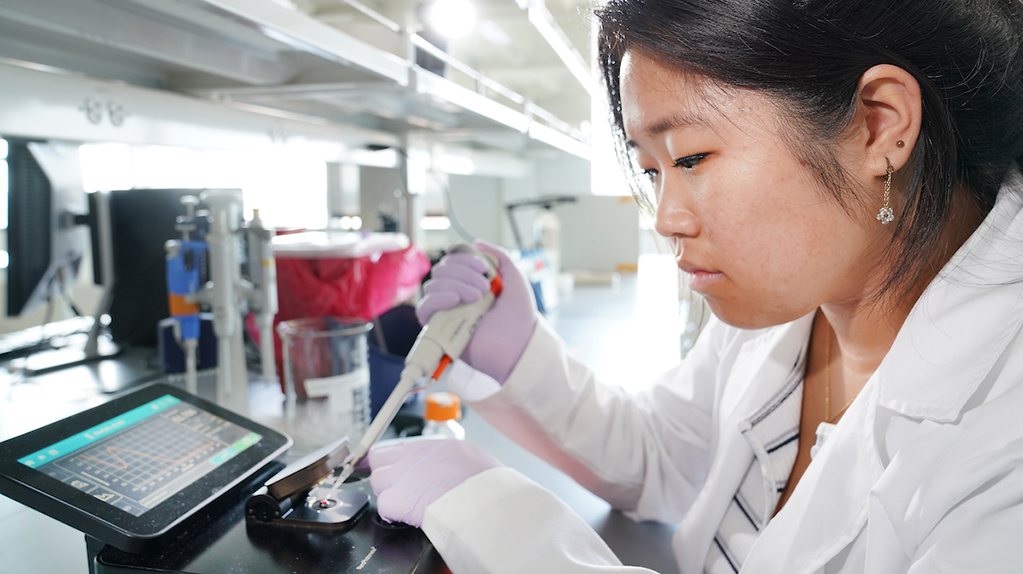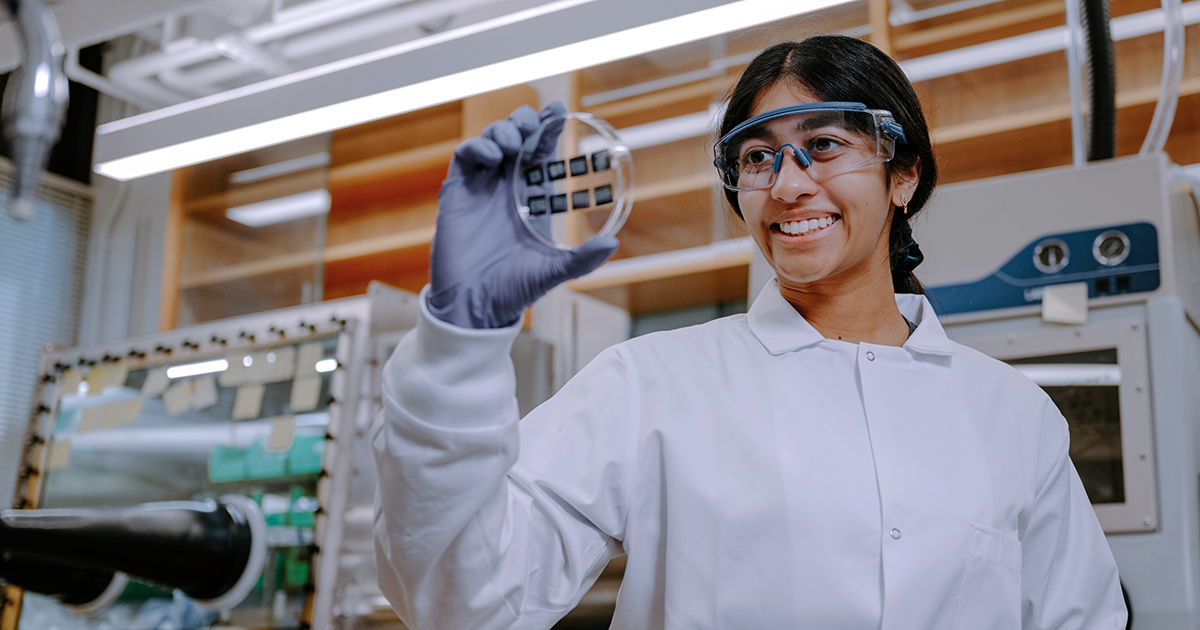Biological Engineering
Tackle global challenges in health, food, energy and the environment. Engineer solutions that make a real impact — like cleaner energy, safer food and life-saving medicine. Customize your path and launch a career in biotech, pharma or sustainability to start changing the world.

Why Purdue?
Applying
Applying to Engineering in West Lafayette
To study biological engineering at Purdue, you will apply to either first-year engineering or agricultural and biological engineering (pre) major. All engineering students in West Lafayette build a foundation for success by completing core first-year engineering curriculum, which is the same in either path, before transitioning to a specialty major in the second year. Core curriculum includes courses in math, chemistry, physics, computer programming and communication skills, as well as introductory engineering coursework that explores career options to help you identify which specialty major is the right fit.
The priority application deadline for first-year engineering and agricultural and biological engineering (pre) is Nov. 1. Applications received after Nov. 1 for this competitive major will be evaluated based on available space.
Combine engineering expertise with biology and technology for a high-impact, hands-on career such as:
- Biomanufacturing specialist
- Biotechnology or biomedical engineer
- Environmental engineer
- Food and biological process engineer
- Pharmaceutical process engineer
- Regenerative medicine researcher
- Regulatory affairs specialist
Through innovative hands-on experiences and world-class instruction, our graduates launch careers at top companies including:
- Manufacturing and engineering associate, General Mills
- Quality assurance in the Parenteral Products Network Global Cartridge program, Eli Lilly & Company
- Research and development scientist, Ninth Avenue Foods
- Principal quality assurance in PRD drug substance, Eli Lilly & Company
- PhD degree program, University of California Berkeley
- PhD degree program, Massachusetts Institute of Technology
- Master of Science degree program, Washington State University
You should pursue the most rigorous high school curriculum available to you. Succeeding in challenging courses will make you a stronger candidate for Purdue’s competitive admission process and better prepare you for college success.
Minimum high school coursework (many applicants exceed these minimums):
- Math – 4 years
- English – 4 years
- Lab science – 3 years
- Social studies – 3 years
- World language – 2 years
In addition to meeting or exceeding the minimum high school course requirements, our holistic review process places particular emphasis on key academic courses such as:
- Calculus (if available at high school)
- Four years of laboratory sciences, including:
- Biology
- Chemistry (expected)
- Physics (if available at high school)
Connect
College of Agriculture
Discover over 30 majors, plus minors and concentrations, at one of the world’s top-ranked agricultural colleges.
Contact
Office of Academic Programs
(765) 494-8470
purdueag@purdue.edu
Visit
Experience for yourself all that Purdue has to offer with opportunities to explore in-person or virtually.
Apply
Ready to take the next step? Apply to begin your journey at Purdue in engineering.
Transfer to Biological Engineering
Purdue admits to individual majors. Transfer students must meet Purdue’s overall transfer criteria, as well as any major-specific requirements. Before you apply, check the closed programs page to confirm this major is open to transfer students. If it is, refer to the information below for major-specific transfer criteria.
- Minimum 3.0 GPA
- For detailed admissions requirements to transfer into any of Purdue’s engineering majors, review our engineering transfer criteria.









